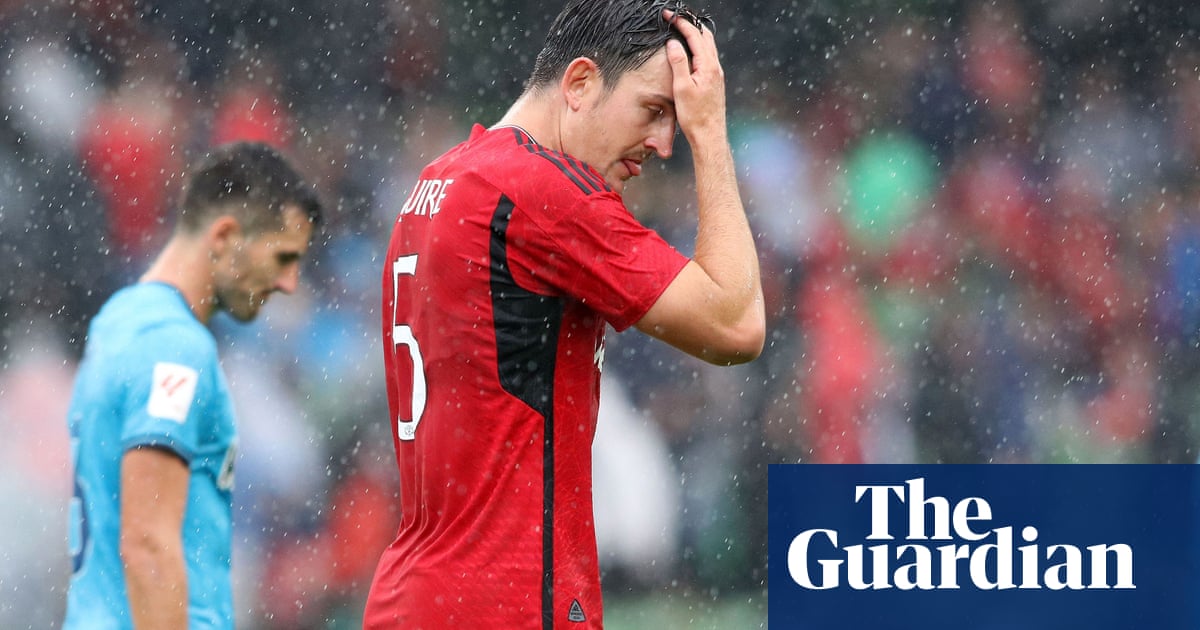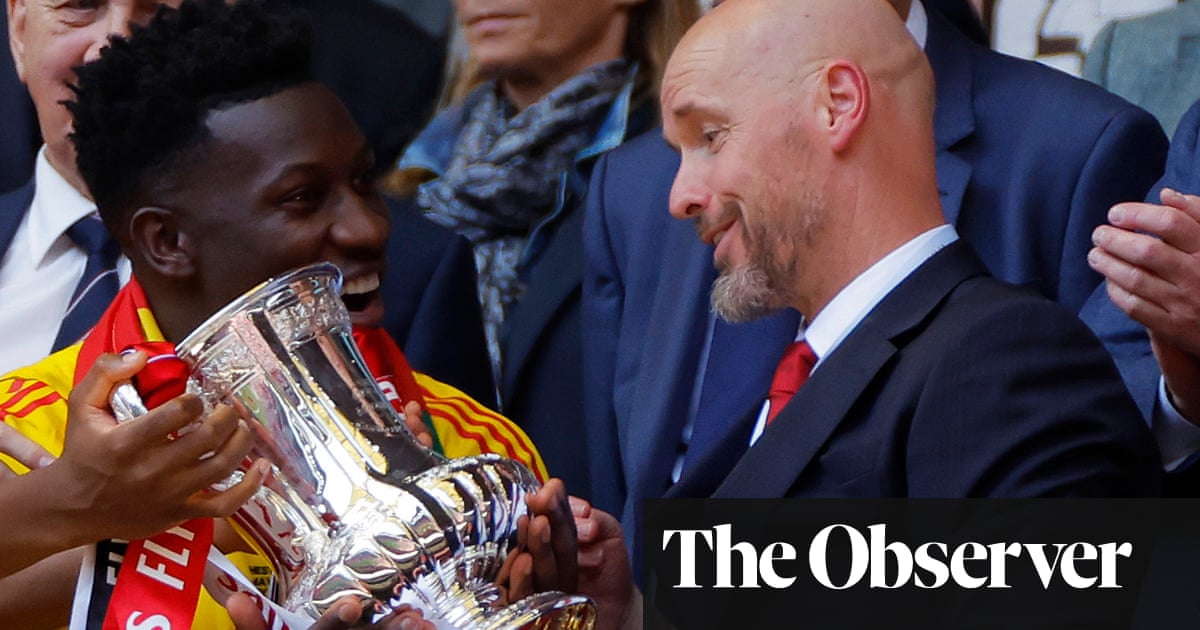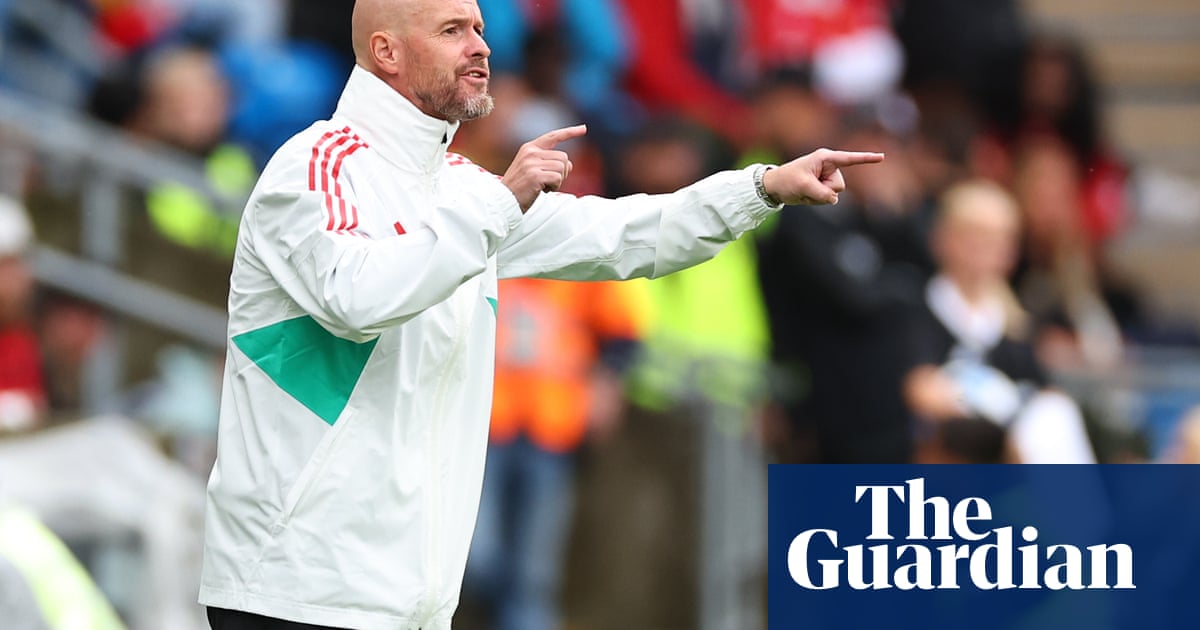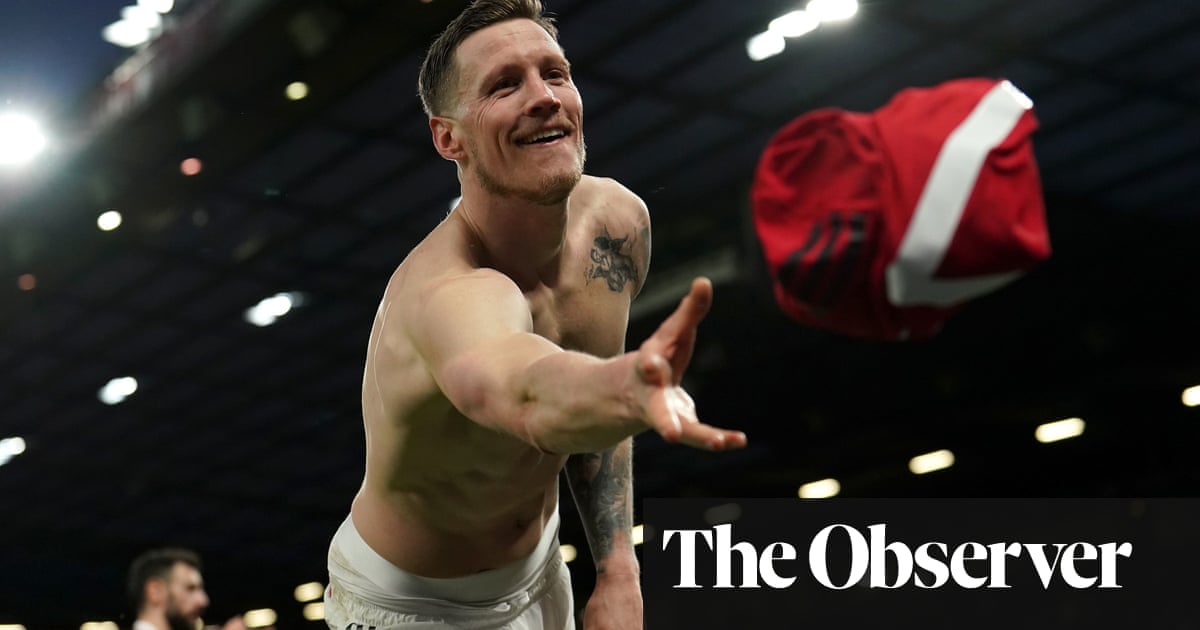
After Manchester United decided Harry Maguire’s on-off move away from the club is, barring a last‑minute about‑turn, decisively off, the 30-year-old reaches an odd career juncture for a defender Gareth Southgate still rates a mainstay of his England team.
Maguire arrived at United in August 2019 on a ticket of being a yeoman defender and modern ball-playing centre‑half. The subsequent years have proved otherwise. He could be a powder‑puff last line of resistance and a paltry seven goals in 175 appearances showed a lack of aerial domination in opposition penalty areas.
The hope he could provide artistry in the rearguard was a serious miscalculation by Ole Gunnar Solskjær, the manager who signed him, and United’s football department, who vetoed the transfer when José Mourinho wanted Maguire from Leicester the summer before. After the move became official Solskjær said: “He is a great reader of the game and has a strong presence on the pitch, with the ability to remain calm under pressure – coupled with his composure on the ball and a huge presence in both boxes.”
Maguire never walked the Norwegian’s talk. His control proved ponderous, his decision‑making suspect and something close to panic was never far away when he was put under pressure near goal; hardly box-ticks for a high-grade, build-from‑the‑back central defender.
You did not have to be his manager to identify these weaknesses, but Solskjær persisted with Maguire despite a body of evidence summed up by Tottenham’s 6-1 humiliation of United at Old Trafford in October 2020. With the match behind closed doors because of the pandemic, his vulnerabilities were more starkly illuminated. First, a weak back‑header to David de Gea allowed Tanguy Ndombele to equalise. Then, just as haplessly, he pulled over Harry Kane for the free-kick that created Spurs’ next goal, as Maguire, made captain by Solskjær nine months earlier, and his backline were overrun, United routed.
Maguire, in a nutshell, was an average Premier League talent in a side supposedly tilting for the glittering honours. Erik ten Hag, Solskjær’s successor as United’s full-time manager, identified this and pointed Maguire to the exit almost as soon as he took over. That was last August when defeats against Brighton (2-1) and Brentford (4-0) showed up how Maguire lacked the vision to extricate himself from peril that, say, the similarly one-paced John Terry possessed and made him a premier defender of his generation.
Maguire lost his automatic starting berth and by November, before the player flew with England to the Qatar World Cup, Ten Hag had recommended United should sell. The issue was recouping as much as possible of Maguire’s world-record £80m transfer fee for a defender when his stock was so low. Before it broke down a fortnight ago, Maguire’s proposed £30m move to West Ham would have meant a huge loss and pointed to how he was never really in the right talent stream for United.
Maguire may not feel like counting his blessings while the sting of demotion from captain to almost unwanted squad player is raw, but there is a case to be made that his United career was a bonus, that he was only ever at Old Trafford because of the muddled transfer policy that has come to define the post-Ferguson years.
To comprehend the quasi‑farce that was the misstep of Maguire’s acquisition, rewind to summer 2018. Mourinho wanted a centre‑back and Maguire was high enough on his list for a serious falling-out to occur with Ed Woodward, the then chief executive, and the football department over their veto, the same applying to Yerry Mina and others.
The message went to Mourinho that a player who starred in England’s run to the World Cup semi‑finals in Russia that summer was no upgrade on the existing central defenders – Victor Lindelöf, Eric Bailly, Chris Smalling, Phil Jones and Marcos Rojo. Especially at £70m. Mourinho fumed and by Christmas was sacked. The following close season he was, surely, bemused when, under Solskjær, the football department approved Maguire’s purchase – with the same quintet of centre‑backs still at the club.
Accepting they had been wrong to doubt Mourinho, a three-time Premier League winner and twice a Champions League winner, was one calamity. The second was to sanction a fee of £80m for Maguire – £10m more than Leicester had wanted a year earlier.
Arsène Wenger claimed no footballer should be acquired on the basis of an impressive World Cup campaign, but Maguire’s key role in England’s run to a first semi-final in 28 years was a major factor in United’s move. Hindsight is all-knowing, of course. At the time, his arrival seemed a coup – Pep Guardiola wanted him at Manchester City – but in Solskjær’s gung-ho team, Maguire settled into a pattern of points-costing errors and became a liability.
A question can be asked regarding how Maguire would have fared at City. Instead of being dropped into a shaky United side, would he have prospered if operating in an all-conquering machine? But Maguire was bought to be a major component in the upgrade up of United, a transformational presence in the manner of Virgil van Dijk when the Dutchman joined Liverpool, but, patently, was not in the same class. Guardiola, on realising Maguire was a defender out of time, a throwback to the era when high pressing and pace were not as prevalent, would have been ruthless in disposing of him.
United will argue Maguire is needed after all, but for the player the following question can be asked: should he have accepted West Ham’s offer instead of allowing his transfer to collapse over a wish for a £7m payoff to cover the shortfall in salary? After all, Maguire has his England place to protect. Now, though, he stares at limited game-time and a strange career stasis.












